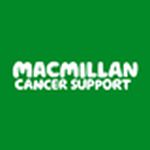Friday 11 May 2018
Robyn Volkers – Maggie's
Fatigue or lack of energy is very common during, or after treatment for cancer.
The information on this page will help you find out more about what fatigue is, how to manage it and how Maggie's can help.
Fatigue is a constant feeling of tiredness and lack of energy.
It can build up over time and can occur any time during or after cancer treatment.
Fatigue may stop you doing normal daily activities and doesn't go away when you rest.
It's usually temporary and will gradually get better as your treatment ends or a short time afterwards. However, some people can experience long-term fatigue.
You may also hear it called cancer related fatigue or CRF.
Symptoms can vary for each person. As well as feeling tired, symptoms of fatigue include:
Whilst it may not be possible to avoid fatigue completely during or after treatment, there are ways you can reduce its effects:
Tell your hospital team
You might think it's not worth mentioning but it's really important to let your doctor know about the fatigue you're experiencing because they will be able to help.
They will investigate what is causing your fatigue. It might be your cancer and its treatment or it could be other, unrelated conditions.
Make sure your doctor is aware of any medications you're taking, including supplements, herbal remedies or over the counter medicines.
They may be able to adjust your medication to ease symptoms or side effects that are causing or adding to your fatigue.
Balance exercise and rest
The thought of exercising when you are feeling fatigued can be overwhelming but it is important.
Exercise can help increase energy levels and appetite, as well as, improve sleep and mood during and after cancer treatment.
It's important to find a way of exercising that's right for you and to balance any exercise you do with regular periods of rest.
We can help you get started – get in touch with your nearest Maggie's to talk to us about what's right for you.
Eat well
Eating well is important in helping to reduce fatigue when you have cancer.
A well-balanced diet, avoiding certain foods and drinking enough water can all help boost energy and reduce the effects of fatigue.
Find out more about eating well and cancer.
Relaxation
Learning relaxation techniques and breathing exercises can help you to manage troublesome thoughts and reduce stress and anxiety.
Sleep
Sleep problems are common when you're feeling fatigued.
Developing strategies to improve your sleep pattern can help boost your energy.
Don't overdo it
Think about what you can manage in a day and set realistic goals.
Ask for help with tasks and chores to give you more time to focus on what's important to you.
We can help. Talk to one of our cancer support specialists about ways to manage your fatigue.
We offer support to help you eat well, a range of different exercise classes, relaxation sessions and sleep workshops.
Get in touch with your nearest centre to discuss what's right for you.
Last review: Dec 2021 | Next review: Dec 2022
This video uses illustrations to explain simple techniques to better manage cancer related fatigue.
From Health Matters
Last reviewed: 29 December 2021
Find out more about ways to treat cancer related fatigue.

From Cancer Research Uk (Cruk)
Last reviewed: 29 December 2021
The vision of Dr Yoga is to provide information & reviews on the latest scientific and clinical studies trends involving yoga and cancer for cancer patients and survivors. Evidence shows that yoga helps to reduce anxiety, depression, fatigue and stress for some patients.
From Dr Yoga
Last reviewed: 29 December 2021
Learn about cancer related fatigue and how to manage it.

From American Cancer Society
Last reviewed: 29 December 2021
Find out more about fatigue due to cancer or its treatments.

From Macmillan Cancer Support
Last reviewed: 29 December 2021
Find out how exercise can help you during and after cancer treatment.

From American Cancer Society
Last reviewed: 29 December 2021
To find your nearest Maggie's centre, enter your postcode or town below.
Stay up to date with our news and fundraising by signing up for our newsletter.
Sign up